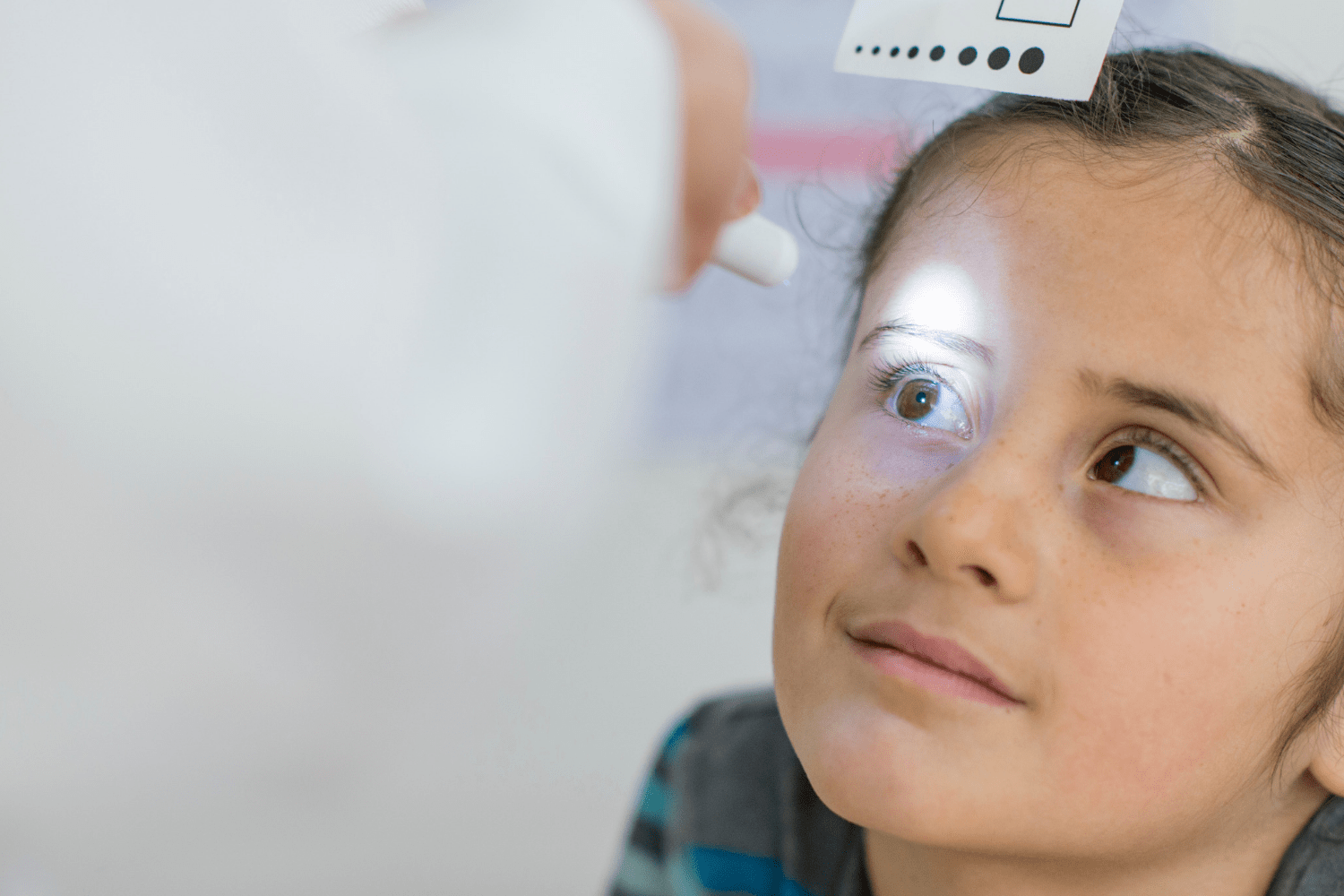Your child’s vision

A routine eye test on newborn babies is completed soon after birth which can detect some eye problems immediately. Tests offered to children later on can help to identify any problems that were missed or develop as your child gets older.
Although serious vision problems during childhood are rare, early testing ensures that any problems are picked up and managed as early as possible. Children may not always realise they have a vision problem, so without routine tests there’s a risk that problems could go undiagnosed for months or even years.
It’s important for eye problems to be identified as early as possible, because they can have a significant impact on a child’s development and education.
Eye problems are often much easier to treat if detected while a child’s vision is still developing (usually up to about seven or eight years of age). An early diagnosis will help to ensure that you and your child have access to any special support services you may need.
When will my child’s eyes be checked?
As part of the reviews of your child’s health and development by a health visitor, you will be asked whether you have any concerns about your child’s eyesight and action will be taken if needed.
Although your child should have regular eye checks, it’s advisable to speak to your GP or school nurse if you have any concerns about your child’s vision at any stage.
Routine eye checks are no longer performed at school entry, so it’s recommended that you take your child to an optician the year they start school and that they have regular eye tests at least once every two years. These tests can be done at a high street opticians and are free for all children under 16 years old (and those under 19 years old in full-time education).
Useful links
Speak to your GP or school nurse if you have any concerns about your child’s eyes or vision. They can have an eye test at any age and do not have to be able to read to have their eyes examined.
It’s possible to see whether the child has a squint or needs glasses without asking them any questions, using age-appropriate tests and equipment.
There are also support groups who are able to provide specialist help and support for families with children who have a visual impairment.
- Guide Dogs(formally Blind Children UK) includes a useful guide to the professionals involved in your child’s care.
- Supporting people with sight loss– includes a useful benefit checker and tips for using your ipad and other technologies.
- Eye Care Trust– has lots of factsheets about eye health including hay fever and sun safety.

